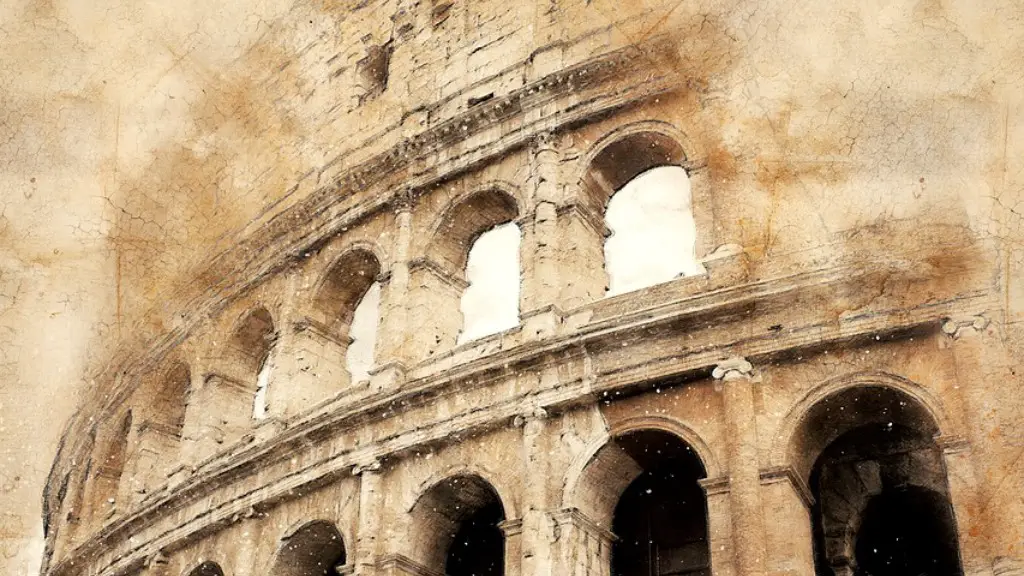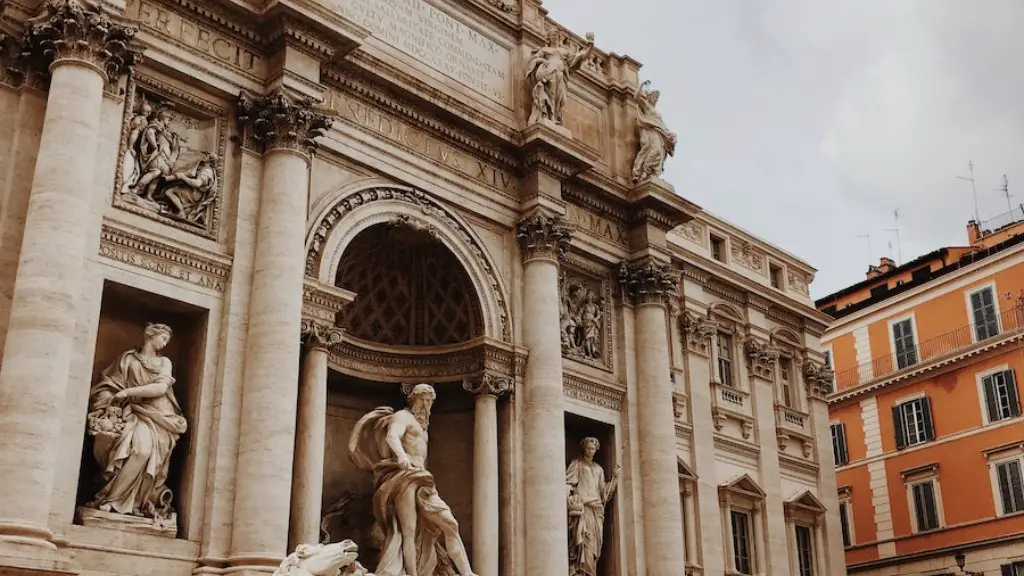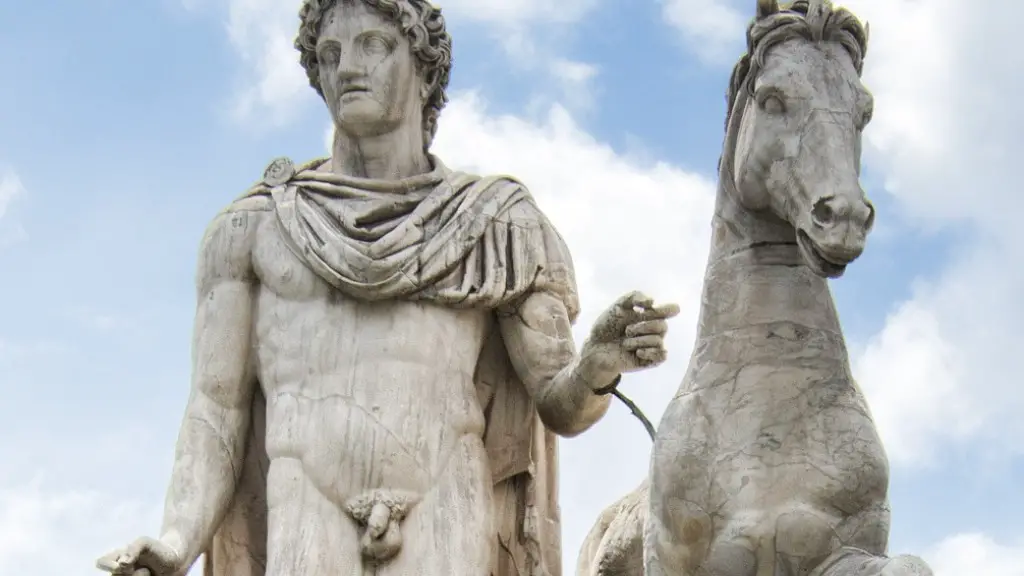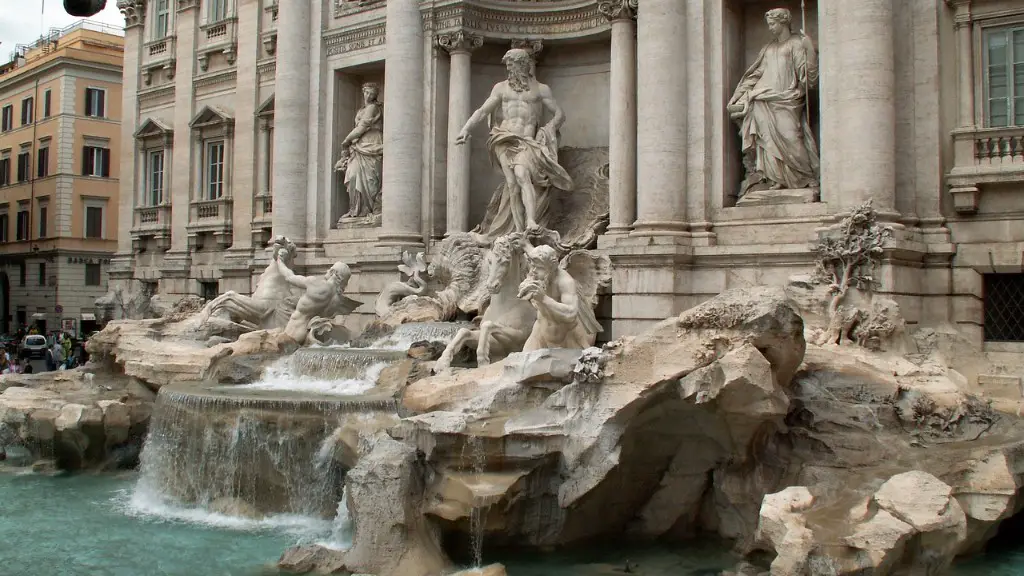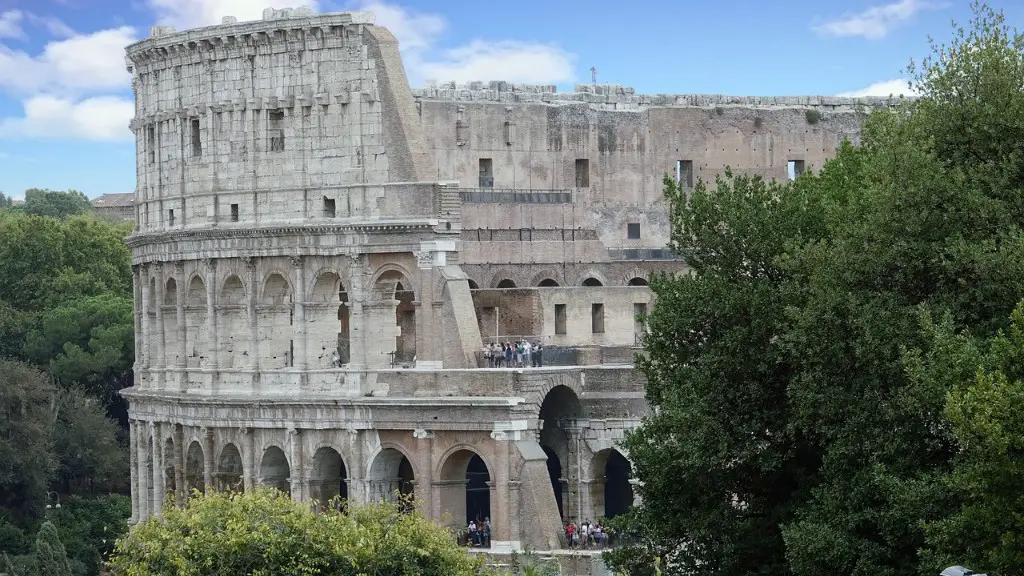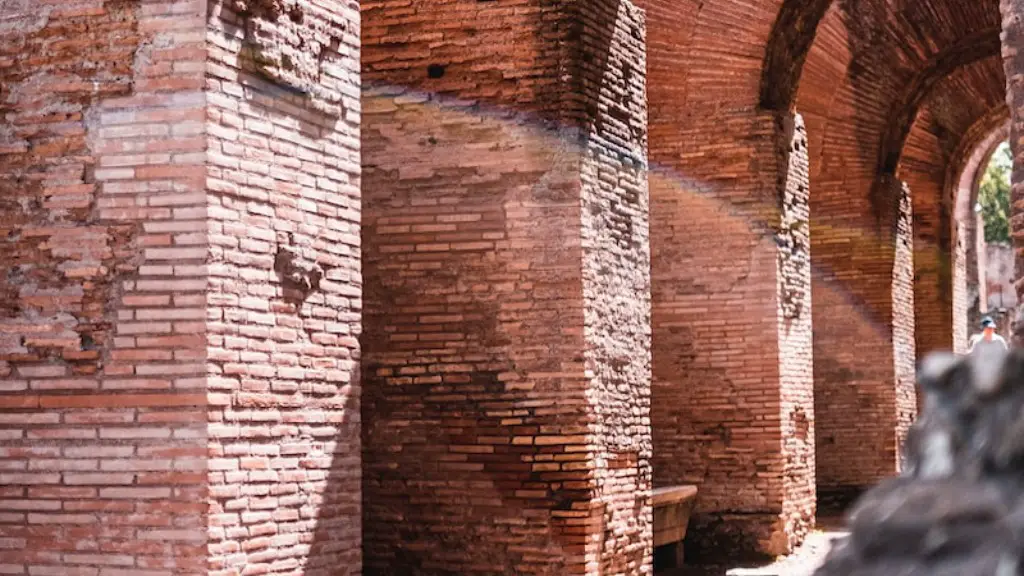Society and Culture
Ancient Rome was an impressive society, full of culture, art, literature and architecture. Rome’s culture included religious practices and rituals, public ceremonies and festivities, as well as public works of art. Ancient Rome was also renowned for its public baths, spectacular public transportation, and public parks and gardens. The city-state was equipped with streets that were built 25 feet wide, providing easier travel access to the Roman people. Ancient Rome’s importance in the development of culture, art and technology is undeniable, and it’s largely responsible for some of the most iconic monuments of today, such as the Colosseum and the Pantheon.
Censorship was also a commonplace in the Roman Empire, though it wasn’t as repressive as it was in other cultures at the time. The Roman citizens were allowed to disagree with the Senate and the ruling class, and were encouraged to think independently. This meant that new ideas could be debated openly, and dissent was accepted.
Social life in ancient Rome was vibrant and dynamic, with strong emphasis on entertainment and leisure. People went to the Roman theatre to watch plays, for example, and took part in chariot racing as a sporting tradition. According to experts, the games that formed part of their cultural life were often seen as representations of the way Roman society functioned. One such example of this is the gladiatorial combat, which was believed to have represented warfare and warring forces, in addition to demonstrating the strength of the Roman Republic.
In ancient Rome, women were seen as the inferior gender and were generally not given the same rights as men. That said, there were still some women who rose to prominence in the Roman world, such as the Vestal Virgins – a priesthood of female priestesses devoted to the goddess Vesta. Women were also expected to be dutiful wives and mothers, and were seen as the guardians of the home. Roman women were not allowed to own property and a husband had the right to divorce her on a whim, though a divorcée in Roman society was still expected to take care of herself.
Political System
The political system of ancient Rome was an impressive example of a democratic system, especially for its time. It was based on the concept of a Republic, with the Senate at its centre. The citizens of Rome and other Italy regions voted for their Senators, and decisions on law-making were made by the Senate. The Senate had executive power, effectively making them the ‘Government’ of Rome. This system of government was so influential that many modern-day Western governments are based on it.
The Roman political system was based on the idea of a ‘civic duty’, which was the idea that citizens had a duty to serve their country. This was enforced by the Roman Senate and it encouraged citizens to take part in the political process. This duty included defending Rome, being educated and taking part in public events. Roman citizens also had the right to vote in elections, meaning they had a say in who was elected and who ran their government.
The Roman Empire was so successful because it was united under one powerful government. This allowed Rome to control vast areas of territory and to bring a large number of people under one government, thus creating amazing projects and fostering a strong economy. This strong centralised government allowed for major public works, such as the building of roads, bridges and aqueducts, as well as the construction of large public monuments and buildings.
The political system also brought stability and peace to the Roman Empire, the result of which meant it could afford to invest in its economy and culture, thus helping it grow. It also allowed for a strong army, which was vital in helping Rome control its large empire.
Technology and Science
The Roman Empire was far ahead of its time in terms of technology and science. The Romans were particularly skilled in engineering, architecture, and infrastructure, and they developed some of the greatest technological advancements of the time. Roman engineers and architects were responsible for creating great buildings such as aqueducts and the Pantheon, which can still be seen today. They also developed roads and bridges to help their armies move quickly, as well as inventing machines such as the catapult and siege tower.
In terms of science, the Romans were well-known for their progress in medicine. Roman physicians used careful observation and experimentation to understand the human body and treatments for disease. Roman doctors also developed tools such as the scalpel and forceps, which are still in use today. Other Roman inventions that are still popular today include the water wheel and the arch, which are used for hydraulic power and as a useful architectural tool.
Ancient Rome was also known for its advances in mathematics, having developed their own system of mathematics that was based on an Arabic numeration system which was used until the 16th Century. Roman mathematics enabled the construction of advanced engineering structures during the Roman Empire, such as roads and aqueducts. They were also well-versed in astronomy, and were one of the first cultures to accurately record the movement of the planets.
The Roman Empire was also a leader in manufacturing and trade. The Romans built roads that allowed them to efficiently trade with their neighbours, and the trade routes used by the Romans spread their culture and technology across the known world.
Economy
The Roman economy was heavily dependent on agriculture, and the majority of its citizens worked in farming. The Roman civilisation had a complex system of taxation, which allowed them to raise funds to pay for public works and the military. This taxation system was one of the most important parts of the Roman economy, as it was the main source of income for the government.
The Roman government also invested in its infrastructure, building roads and aqueducts to improve the trade networks. They also subsidised local industries, such as pottery, metalworking and shipbuilding. This resulted in a strong manufacturing sector and a rising middle class, as merchants and landowners were able to accumulate great wealth.
The Roman Empire was also known for its vast trading networks, which stretched across the Mediterranean and beyond. This allowed them to trade with many different cultures, giving them access to a variety of goods and resources. This enabled Rome to become the largest trading nation in the ancient world, and gave them the wealth to support their economy for centuries.
The Roman currency, the Denarius, became the standard currency of the Mediterranean region, and was one of the most stable currencies of its time. This made it easier for people to trade and buy goods, allowing free trade across the region.
Military and Expansion
Rome was a powerful and successful military power. It conquered many other lands, including those in the Mediterranean, Egypt, Gaul, East Africa and Western Europe. Rome was able to expand its empire so quickly and successfully because of its powerful military. The Roman legions were known for their strength, as they were well trained and equipped with the best weapons and armor. They were also well-disciplined and were backed by a powerful and efficient government.
Rome also had an effective strategy of conquering and managing territories, which included setting up a system of provincial governments. These provincial governments allowed Rome to efficiently manage the conquered territories, allowing the growth of local economies, which in turn allowed for tax revenue for the Roman Empire. This financial stability was vital to the success of Rome and helped it to expand and maintain control over its empire.
In addition to its formidable military, the Roman Empire also had a strong cultural identity. The Romans adopted many customs and concepts from their conquered territories, which helped them to bring local populations under their control. In doing so, they were able to create a unified state, which in turn helped them to expand their empire and control large parts of Europe.
Religion and Philosophy
Religion was also an important factor in ancient Rome, as it was responsible for shaping the culture, society and beliefs of the Roman people. The Roman religion consisted of a mix of ceremonies, superstitions, and rituals, and made up an important part of the Roman society. The Romans believed in a range of gods and goddesses, and worshiped them in their temples. Religion also served as a form of political control, as it gave the state an ideological power over its citizens.
Ancient Rome also had a rich philosophical tradition. The Stoic school of philosophy was arguably the most important school in the Roman Empire, and it had a strong influence on Roman culture. The Stoics believed in the power of reason and argued that pursuing virtue was necessary for achieving happiness. This way of thinking had an impact on Roman law, as it encouraged laws that were based on what was morally right rather than what was practical.
The Roman Empire was also a great proponent of learning, with the government investing in the education of its citizens. The Roman system of education was divided into two levels: the lower level for children, and the higher level for adults. There were also many experts in many fields of knowledge – particularly philosophy, law, engineering and architecture – that the Romans looked to for advice. In this way, the Roman civilisation was able to learn from the best minds in their society, and create a rich and vibrant scholarly culture.
Decline and Legacy
The Roman Empire lasted for over 500 years and its legacy is still seen today. Despite its decline, it remained a strong influence on world culture and many of its innovations are still seen today throughout the western world. Its political system laid the foundation for many modern-day governments, and its engineering feats are admired to this day. Ancient Rome also left behind a rich literary tradition and a wealth of artistic works.
Despite its decline, many of the Roman ideas survived. It was during the Middle Ages that many of its ideas were revived, and Rome became a major cultural influence throughout much of Europe. Its language, Latin, was made the official language of the church and its influence is still seen in the many languages derived from it. Ancient Roman law, in particular, has been influential in European law since the beginning of the modern age.
In conclusion, Ancient Rome was an impressive society with a long and influential legacy. Its culture, art, literature, language, technological and scientific advances, economic strength, political power, and military prowess were remarkable. From its success and incredible achievements, we can learn a great deal about how a powerful and influential empire can be built and how it should be managed. Ancient Rome is an example of how great a society can become when it combines strong government and citizens that take part in a committed civic duty.
